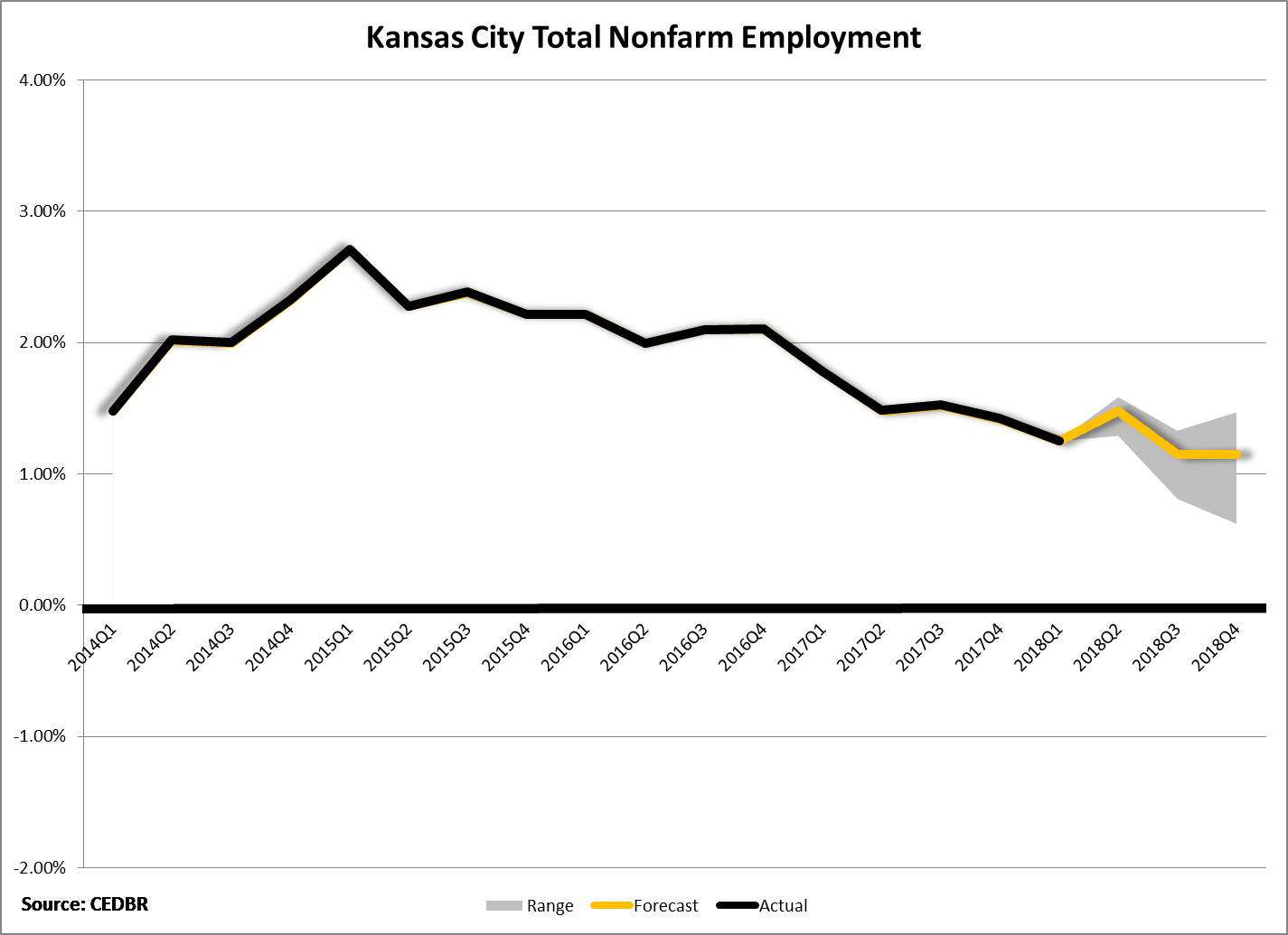Kansas City Employment Forecast
Released May 23, 2018
In 2017, total non-farm employment in the Kansas City, MO-KS metropolitan area expanded by 1.3 percent, an increase of 16,500 jobs. In 2018, Kansas City employment is forecast to increase by approximately 14,000 jobs, growing 1.3 percent, with an expected growth range between 1.2 percent and 1.5 percent. This growth is projected to be slightly lower than the Kansas City area’s employment growth from 2010 to 2017, which averaged 1.7 percent annually.
- The production sectors are projected to grow modestly in 2018, expanding 0.2 percent. Natural resources and construction employment is forecast to grow by over 1,200 jobs, but this is expected to be largely offset by a decline of approximately 900 jobs in the manufacturing sector.
- The trade, transportation and utilities sector is expected to increase by 0.4 percent, adding over 2,500 jobs. The job gains are projected to be shared by the wholesale trade sector and the transportation and utilities sector, while the retail trade sector is predicted to decline 0.2 percent. Taxable retail sales growth is expected to be modest, growing approximately 0.7 percent after adjusting for inflation.
- The service sectors are projected to grow by 1.7 percent in 2018, adding over 9,000 jobs. Service sector growth is expected to account for approximately two-thirds of total job growth in the metro area, despite only representing half of the total jobs in the area. Service sector employment has grown faster than the overall average for the Kansas City area in five of the past seven years. Growth in 2018 is expected to be primarily concentrated in the professional and business services sector, the financial activities sector, and the education and health services sector.
- Government employment is forecast to grow 1 percent, adding over 1,400 jobs in 2018. This growth is expected to be focused largely at the local level, while state and federal government are predicted to remain relatively flat.
Nationally, real GDP grew 2.3 percent in 2017, which was primarily driven by increases in personal consumption expenditures and private investment. National employment increased by 1.6 percent in 2017.
| DOWNLOAD PDF VERSION |



